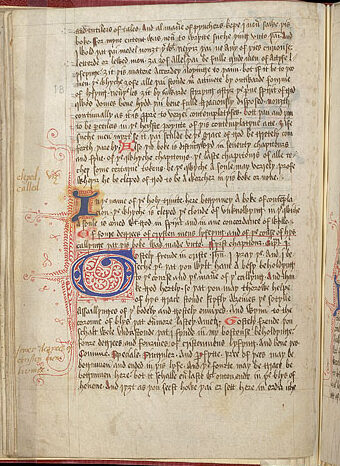Last summer, our traditional quarterly gathering of 20 to 30 meditators at Ambleside focussed on the sharing of our experience of ‘living with’ the great spiritual classic known as The Cloud of Unknowing. This is an anonymous work of Christian mysticism written in Middle English in the latter half of the 14th century. The text is a spiritual guide on contemplative prayer in the late Middle Ages. The underlying message of this work suggests that the way to know God is to abandon consideration of God’s particular activities and attributes, and be courageous enough to surrender one’s mind and ego to the realm of “unknowing”, at which point one may begin to glimpse the nature of God. The Cloud of Unknowing focuses on the via negativa road to discovering God as a pure entity, beyond any capacity of mental conception and so without any definitive image or form. This tradition has reputedly inspired generations of mystics, in particular John of the Cross. The English Augustinian mystic Walter Hilton has at times been suggested as the author, but this is generally doubted. It is possible the author was a Carthusian priest, though this is not certain. It is also possible, but again doubtful, that it may have been written by a woman; the author is contemporary with Julian of Norwich. Perhaps it is most appropriate that the author is unknown!
Margaret Ives, who introduced the day, summarised “We simply have to ‘unknow’ everything we thought we knew about God, because our human knowledge is expressed in words, and words are inadequate to express the Divine mystery that is God. To experience an awareness of God’s Presence and be inspired and guided by it, we must enter this cloud, and linked with this is the process of Forgetting. ‘Contemplation’, the author says, ‘requires us to hide all people and all things past, present and future, and all accomplishments under a Cloud of Forgetting. When I say you must forget everything in creation, I mean not only the creatures themselves, but also everything that they do and are, as well as the circumstances in which they find themselves. There are no exceptions. You must forget everything’. Sometimes, using slightly different language, he says that in contemplation we must have nothing but a “naked intent“ to come into union with God; we must, as it were, strip our souls bare and present ourselves as naked, so as to be clothed with His love.”
The Book of Privy Counseling, written by the same author, which continues the themes discussed in the Cloud, was also discussed. It is less than half the length of the Cloud, appears to be the author’s final work, and clarifies and deepens some of its teachings. In this work, the author characterises the practice of contemplative unknowing as worshipping God with one’s substance’ coming to rest in a naked blind feeling of being, and ultimately finding thereby that God is one’s being. Experience, in keeping with the mystical tradition, is considered the ultimate means by which a Christian can and should relate to God, and the practice of contemplation in The Cloud is thus focused on ‘piercing this cloud of unknowing with a dart of longing love’; this is the experience of God by the contemplative.
Bob Morley
Christian Meditation in Cumbria – July 2022
Picture from Theological miscellany, including the Cloud of Unknowing from the Robert Harley collection in the British Library. CC by 4.0.
